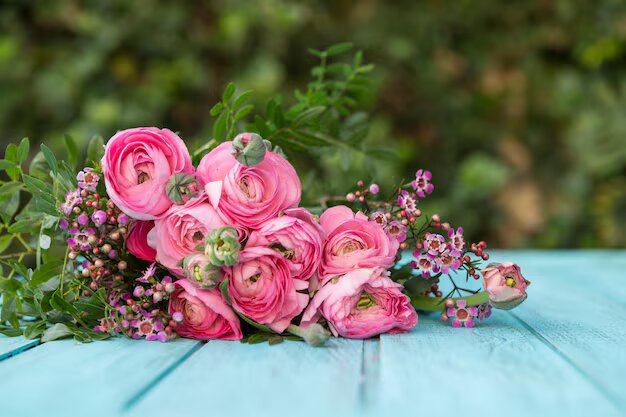Flower Power: How Bouquet Say What We Can’t!

In a world where digital communication often dominates, the tangible and sensory experience of receiving flowers is more meaningful than ever. The sight, scent, and touch of blooms create lasting memories and evoke deep emotions. Whether you’re celebrating a special occasion, offering comfort, or simply brightening someone’s day, get then one flower basket, flowers remain a powerful and cherished gift.
Each bloom, color, and arrangement can convey a message, creating a silent language understood by those who receive them. This article delves into the enchanting world of floral symbolism, exploring the different categories and meanings that make gifting flowers a timeless and powerful gesture.
The Origins of the Language of Flowers
The concept of communicating through flowers, also known as floriography, gained prominence during the Victorian era in England. During this time, strict social conventions limited direct expressions of emotions, particularly romantic feelings. Flowers became a covert way to communicate sentiments that could not be spoken aloud. Each flower and its color were assigned specific meanings, creating a complex and nuanced floral vocabulary.
Categories of Floral Symbolism
To fully appreciate the language of flowers, it’s essential to understand the various categories and the emotions they represent. Here, we explore the most common categories and the flowers that fall under each, along with their meanings and ideal gifting occasions.
1. Love and Romance
Love is perhaps the most celebrated emotion expressed through flowers. Different blooms and their colors can convey various aspects of love, from passionate romance to enduring commitment.
- Roses: The quintessential symbol of love, roses come in different colors, each with its own meaning. Red roses signify deep love and passion, pink roses represent admiration and joy, white roses symbolize purity and new beginnings, and yellow roses stand for friendship and caring.
- Tulips: Known for their elegance, tulips also convey love. Red tulips declare true love, while purple tulips symbolize royalty and deep respect. Pink tulips indicate affection, and yellow tulips, much like yellow roses, signify cheerful thoughts and friendship.
- Carnations: These flowers express fascination and distinction. Red carnations symbolize deep love and admiration, while pink carnations convey a mother’s undying love. White carnations represent pure love and good luck.
- Lilies: Lilies are often associated with purity and refined beauty. White lilies, in particular, represent the purity of love and commitment, making them a popular choice for weddings and anniversaries. Discover Just Flowers Coupons & Promo Codes on Dealszo.com to purchase flowers for romance, friendship & weddings.
2. Friendship and Gratitude
Flowers are also a wonderful way to show appreciation for friends and to express gratitude. The following flowers are perfect for celebrating these special bonds.
- Sunflowers: With their bright and cheerful appearance, sunflowers symbolize adoration, loyalty, and longevity. They are ideal for expressing appreciation and admiration towards friends.
- Yellow Roses: As mentioned earlier, yellow roses are emblematic of friendship and joy. They are perfect for celebrating a friend’s achievement or simply to brighten their day.
- Daisies: Simple yet charming, daisies represent innocence, loyalty, and new beginnings. They are often given to show loyal friendship and convey a message of mutual respect.
- Alstroemeria: Also known as the Peruvian lily, alstroemeria symbolizes friendship and mutual support. They are great for celebrating the strength and beauty of a lasting friendship. FNP Online Gift Store is a one-stop destination offering a delightful selection of gifts, including flowers, cakes, and gift hampers, with Fnp Discounts & Coupon Codes available for extra savings.
3. Sympathy and Remembrance
Flowers can offer comfort and convey condolences during times of loss and sorrow. They serve as a gesture of sympathy and a tribute to those who have passed.
- Lilies: Often used in funerals, lilies symbolize the restored innocence of the soul of the departed. White lilies, in particular, are a common choice for sympathy arrangements.
- Chrysanthemums: In many cultures, chrysanthemums are associated with death and are used in funerals. They symbolize honor and support for the grieving family.
- Gladioli: Representing strength and moral integrity, gladioli are often used to express sympathy and to celebrate the life and character of the deceased.
- White Roses: Symbolizing purity and reverence, white roses are also commonly used in funeral arrangements to offer comfort and express condolences.
4. Celebrations and Joy
Certain flowers are perfect for celebrating joyous occasions such as birthdays, anniversaries, and new beginnings. These blooms convey happiness, success, and positive energy.
- Gerbera Daisies: With their vibrant colors, gerbera daisies symbolize cheerfulness and celebration. They are perfect for birthdays and other festive occasions.
- Orchids: Orchids represent beauty, strength, and luxury. They are ideal for celebrating achievements and special milestones.
- Peonies: These lush and full blooms symbolize prosperity, good fortune, and happy marriage. They are perfect for weddings and anniversaries.
- Irises: Symbolizing hope, wisdom, and courage, irises are often given to celebrate new beginnings and to convey best wishes for the future. Send fresh flowers, plants, roses, bouquets, and gift baskets with 800florals promo codes to save on your purchases.
5. Apologies and Forgiveness
Flowers can also be a powerful way to seek forgiveness and to express sincere apologies. These blooms carry messages of regret and the hope for reconciliation.
- White Tulips: Representing peace and forgiveness, white tulips are ideal for expressing remorse and seeking reconciliation.
- Blue Hyacinths: Symbolizing sincerity and regret, blue hyacinths can be given as a gesture of apology and to show heartfelt sorrow.
- Purple Hyacinths: These flowers signify deep regret and a desire for forgiveness, making them appropriate for expressing sincere apologies.
- Daffodils: Symbolizing new beginnings and rebirth, daffodils can be given to express the desire to move forward and to mend a broken relationship. Use Monthly Clubs Coupons and Promo Codes for subscriptions focused on beer, wine, cheese, chocolate, cigars, and flowers, helping enthusiasts save on their favorite treats.
If you’re looking for a gift that combines timeless beauty with lasting charm, consider giving artificial flowers instead of real ones. Unlike fresh blooms, artificial flowers maintain their vibrant colors and elegant appearance indefinitely, making them a perfect symbol of enduring affection. They require no maintenance, are allergy-friendly, and can be enjoyed all year round, offering a thoughtful and practical alternative that brings joy and cheer without the need for constant care. Use Nearly Natural Coupons & Promo Codes for high-quality artificial plants, flowers, and trees.
Gifting Flowers: The Art of Selection and Presentation
When gifting flowers, it’s important to consider not only the symbolism but also the presentation and context. Here are some tips for selecting and presenting flowers to convey the intended message effectively.
1. Consider the Recipient
The recipient’s personality, preferences, and the nature of your relationship should guide your choice of flowers. Consider their favorite colors and blooms, as well as any known allergies.
2. Choose the Right Arrangement
The arrangement of flowers can enhance their meaning. Bouquets, single stems, and mixed arrangements each have their own connotations. A single red rose, for example, can be a powerful declaration of love, while a mixed bouquet might convey a range of emotions.
3. Add a Personal Touch
Including a handwritten note or card with your floral gift adds a personal touch and clarifies your message. Express your feelings and the reason for the gift in your own words.
4. Mind the Season
Seasonal flowers are often fresher and more affordable. They also show that you’ve put thought into selecting blooms that are in harmony with the current time of year.
5. Presentation Matters
The way you present the flowers can significantly impact their reception. Consider the packaging, the vase, and any additional elements like ribbons or decorative paper. A well-presented floral gift shows care and attention to detail.
6. Know the Etiquette
Different cultures have unique customs and etiquette related to gifting flowers. For instance, in some Asian cultures, white flowers are associated with funerals and should be avoided for celebratory occasions. Understanding these nuances can help you avoid unintentional faux pas.
The Timeless Appeal of Floral Gifts
The act of gifting flowers transcends time and cultural boundaries. It is a universal gesture that speaks to the human need for connection, expression, and beauty. Flowers have the power to convey emotions that words sometimes fail to capture, making them an enduring symbol of love, friendship, sympathy, and joy.
Conclusion
Understanding the language of flowers adds a layer of depth and intention to the act of gifting blooms. By selecting flowers that align with the message you wish to convey, you can communicate emotions and sentiments with elegance and grace. From the passionate red rose to the cheerful sunflower, each flower carries a story, making your gift not just a beautiful gesture but a meaningful one.
So, the next time you choose to express your feelings through flowers, remember the rich tapestry of meanings woven into each petal. Let the language of flowers speak for you, conveying your unspoken emotions and creating a lasting impression on those who receive them.



